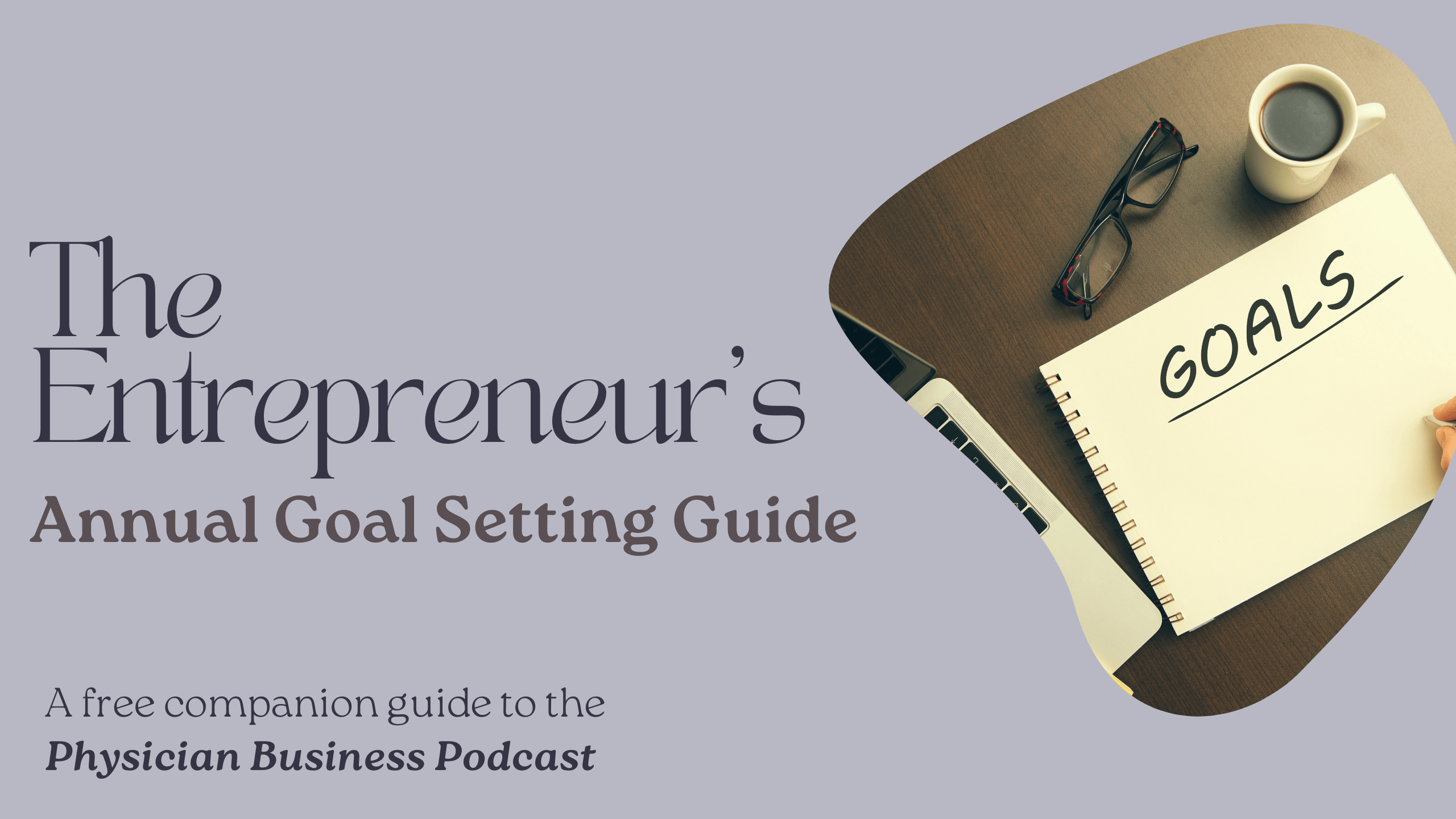13. The Hidden Cost of Being the “Good Girl” in Business
Oct 08, 2025If you have spent your entire life being the “good girl,” following the rules, ticking every box, and making everyone proud, the idea of stepping out on your own can feel daunting. For many women physicians, that mindset has been the key to success — helping them excel through years of training, long hours, and the structured environment of corporate medicine.
But when it comes time to leave that world and build an independent practice, the very habits that once guaranteed success often become the biggest roadblocks. The “good girl” conditioning that kept you safe and accomplished can quietly hold you back from taking bold risks, trusting your instincts, and creating a business that truly reflects who you are.
In this post, we’ll explore how the “Good Girl” persona shows up during this transition, why it can make entrepreneurship feel uncomfortable or uncertain, and how redefining what it means to be “good” can help you build a practice that feels authentic and freeing.
What Is the "Good Girl" Persona?
Most of my clients know exactly what I mean when I bring up the good girl persona. They can immediately recall moments when they made sure to be tidy, on time, and prepared. It includes caretaking for others, always following the rules, thinking ahead, and performing in ways that please people, whether academically, professionally, or socially.
As women, we're socialized to follow society's rules, and society isn't always forgiving when we decide to break them. These expectations are set early, and I've found that physicians are especially prone to staying attached to this persona throughout their careers.
Why? Because medical training reinforces it relentlessly.
The education doctors receive keeps prolonging the good girl persona. From undergrad to medical school to residency, and often fellowship, it's years and years of training. Even once you enter corporate medicine, there's another layer of rules to follow. Being a "good girl" means having a strong understanding of those rules, knowing exactly what's expected, and delivering on it consistently.
And it works beautifully in those settings. The good girl persona serves women physicians extremely well in education and corporate medicine jobs. The problem starts when you decide you're no longer happy in your corporate role and want to leave the hospital or clinic to work for yourself.
Why the Good Girl Persona Fails in Entrepreneurship
While the good girl mindset is incredibly helpful in structured settings where an employee mindset is expected, it's just not useful, and can even be harmful, in an entrepreneurial setting. Here's why:
1. There Are No Hard and Fast Rules in Entrepreneurship
For every business axiom that tells you to do something "the right way," there are plenty of examples of people doing the opposite and succeeding wildly.
Take the story of Dick's Sporting Goods, for example. When competition moved into town, they made an unconventional decision: they dropped prices on certain products to keep customers coming in, even though it meant losing profit margin. The competition noticed and got upset, which gave Dick's an idea: drop prices even further.
This went against all traditional business advice. They weren't just offering a loss leader; they were actively losing money on each item sold. Then, one day, the owner sent an employee to the competitor with cash and bought out their entire stock of that product line at the discounted price. The competitor ran out and had sold everything at a loss, while Dick's held onto the inventory and sold it later at regular price, making a higher profit.
There are no standard rules when you're running a business. Your job is to pivot, pay attention to what's happening around you, and adapt your strategy as you go.
2. Entrepreneurship Is a Creative Endeavor, and It's Chaotic
Entrepreneurship requires flexibility and creativity, not just planning and following steps. You can't always plan everything ahead of time, and even when you do, there's no guarantee it'll work out the way you want.
It's a mix of reactive and proactive actions. In the Dick's Sporting Goods example, they reacted with price drops but got proactive when they purchased the competitor's inventory. You have to be willing to toggle between the two.
For the good girl persona to work, there has to be someone who tells you what "good" means, someone above you who models or describes success. If you do X, Y, and Z, you get rewarded.
But entrepreneurship doesn't work that way. Your customers don't tell you upfront exactly what they're expecting. Sometimes they'll give you pieces of it if you ask, but they never give you the whole picture because that's not their job. It's your job to piece it together.
If you bring the good girl persona into the entrepreneurial space, you miss opportunities for creativity and problem solving that you actually need to be competitive and successful.
3. You Have to Decide What You Want
This is the key to shedding the good girl persona: you have to decide what you want.
Not what your boss wants. Not what the CEO wants. Not what your partner, peers, friends, or even your patients want.
It has to be what you want.
It's your job to set the direction and to determine the North Star of your clinic. Not knowing what you want leaves you and your team without direction. It makes decision making harder, trade offs unclear, and it becomes difficult to motivate your team because they don't know where they're headed or what you want from them. There's a deep lack of clarity, and confusion.
Honoring the Good Girl While Letting Her Go
With all of this, I want to honor the fact that as women, we've been heavily incentivized to be the "good girl." And it's led to a lot of our success and safety. For many of us, if we hadn't been the good girl, we wouldn't be where we are now.
I have my own relationship with my inner good girl, but I know I don't want to rely on her as much when running my business. I want to listen carefully to what she has to say and take the things that are useful, but drop the rest. Because within her voice and suggestions, there are a lot of other people's voices that I don't need to listen to anymore.
Moving Forward
The good girl persona is one of the first things I find myself talking to my women physicians about when we start working together. If this resonates with you, know that you're not alone. The transition from corporate medicine to entrepreneurship isn't just about business skills. It's about unlearning old patterns and creating new ones that actually serve you.
You don't have to abandon everything that got you here. But you do need to decide which parts still fit, and which parts are holding you back from building the practice you truly want.
This is part one of a mini-series on mindset challenges physicians face when transitioning from corporate medicine to entrepreneurship. If you want to discuss your specific situation and how to navigate these challenges, book a complimentary discovery call—I'd love to hear about your vision for independent practice.


